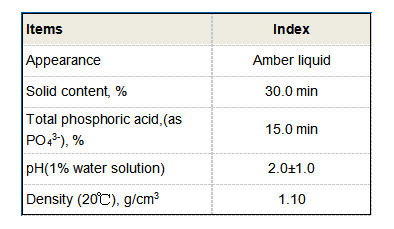Effective Strategies for Preventing Scale Buildup in Cooling Towers with Chemical Inhibitors
The Importance of Cooling Tower Scale Inhibitors
Cooling towers are integral components in various industrial processes, power plants, and HVAC systems, playing a crucial role in maintaining optimal temperatures for equipment and preventing overheating. However, the performance and efficiency of these cooling systems can be significantly hampered by scale formation. Scale, primarily composed of minerals such as calcium carbonate, calcium sulfate, and magnesium silicate, precipitates out of the water when conditions are conducive (i.e., high temperatures and evaporation). This accumulation not only reduces the heat transfer efficiency but can also damage equipment, leading to costly downtime and maintenance. To combat this issue, cooling tower scale inhibitors have become essential.
Understanding Scale Formation
Scale formation occurs when the concentrations of dissolved minerals in the cooling water exceed their solubility limits due to evaporation and concentration as water circulates through the cooling system. Factors such as high water temperature, high concentration of minerals, and improper chemical treatment can exacerbate the problem. Scale can lead to various issues, including reduced water flow, increased energy consumption, and even failure of mechanical components.
Role of Cooling Tower Scale Inhibitors
Cooling tower scale inhibitors are chemical compounds designed to prevent or minimize scale formation. They work by interfering with the crystallization processes of minerals in the water. By modifying the nucleation and growth of mineral crystals, these inhibitors ensure that they remain suspended in the water rather than depositing onto surfaces within the cooling system.
Different types of scale inhibitors include phosphonates, polyacrylates, and carboxylate-based polymers. Each of these has varying mechanisms of action and effectiveness, depending on the water chemistry and the specific minerals being targeted. For instance, phosphonates are particularly effective in preventing calcium carbonate scale, whereas acrylate-based inhibitors may be more effective against calcium sulfate.
cooling tower scale inhibitor

Benefits of Using Scale Inhibitors
1. Enhanced Efficiency By mitigating scale formation, cooling tower scale inhibitors help maintain heat transfer efficiency, ensuring that systems operate effectively. This translates into lower energy costs and improved performance of the cooling equipment.
2. Extended Equipment Life Reduced scale buildup decreases the likelihood of equipment overheating and breaking down. This not only prolongs the life of the cooling system components but also minimizes the frequency and cost of repairs.
3. Lower Maintenance Costs The use of scale inhibitors can significantly cut down on maintenance and cleaning efforts. Regular maintenance to remove scale is often time-consuming and costly; inhibitors reduce the need for such intensive interventions.
4. Environmental Sustainability Effective scale management can also contribute to better water conservation practices. By reducing water treatment needs and minimizing water losses due to evaporation, industries can improve their overall sustainability footprint.
Conclusion
In conclusion, cooling tower scale inhibitors are vital in modern industrial operations that rely on cooling systems. By preventing scale formation, these chemical compounds contribute to enhanced efficiency, prolonged equipment lifespan, reduced maintenance costs, and improved environmental practices. As industries continue to strive for efficiency and sustainability, the use of cooling tower scale inhibitors will undoubtedly play an increasingly important role in maintaining operational integrity and reducing environmental impact. Regular monitoring of water quality and appropriate chemical treatment strategies tailored to specific operational conditions will ensure that cooling systems remain effective and efficient for years to come.
-
Pbtc Scale InhibitorPBTC: A Scale Protector for Industrial Water TreatmentNewsAug.05,2025
-
Organic Phosphonate: An Efficient Defender in the Field of Scale InhibitionNewsAug.05,2025
-
Hydrolyzed Polymaleic Anhydride: Green Pioneer in Scale Inhibition FieldNewsAug.05,2025
-
PAPEMP Polyamino Polyether Methylene Phosphonic Acid For SaleNewsAug.05,2025
-
Flocculant Water Treatment: A Pioneer in Purification in the Field of Water TreatmentNewsAug.05,2025
-
Benzyl Isothiazolinone: An Efficient and Broad-Spectrum Antibacterial Protective GuardNewsAug.05,2025





